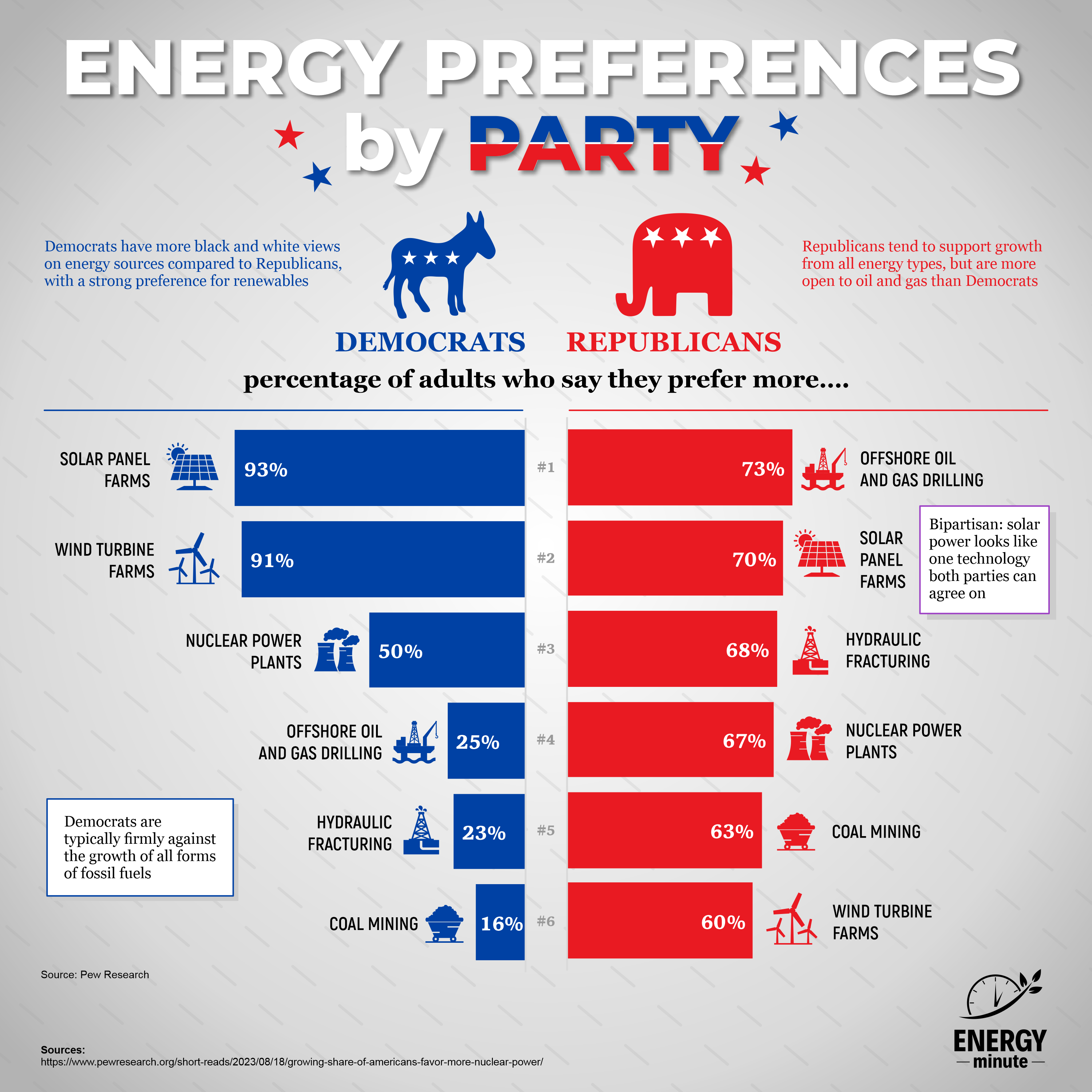Views on Energy Sources by Party

The topic of energy in the United States is a complex one, with varying viewpoints across the political spectrum.
Republican Views
- Fossil fuels: Generally support the continued use of fossil fuels like oil, natural gas, and coal. They argue that these resources are crucial for economic growth, energy independence, and job creation.
- Regulatory rollbacks: Often advocate for fewer regulations on the energy sector, believing that this will lead to increased production and lower energy costs.
- Climate change skepticism: More skeptical of the science behind climate change and less supportive of aggressive measures to combat it.
- Nuclear: More supportive of nuclear energy as a clean and efficient energy source.
Democratic Views
- Renewables: Emphasize the transition to renewable energy sources like solar, wind, and hydroelectric power. They view this as essential for combating climate change and creating sustainable energy solutions.
- Environmental protection: Advocate for stricter environmental regulations to reduce pollution and protect natural resources.
- Climate action: Acknowledge the science behind climate change and support international agreements and domestic policies aimed at reducing greenhouse gas emissions.
- Energy efficiency and innovation: Support investments in energy efficiency and the development of new, cleaner energy technologies.
But there are view which are shared by supporters of both parties:
Areas of Bipartisan Agreement
- Energy security: Shared interest in ensuring energy security and reducing dependence on foreign oil.
- Grid modernization: Recognize the need to modernize the energy grid to make it more efficient, resilient, and capable of handling new types of energy production.
- Research and development: Support for research and development in new energy technologies, though the focus of this research can differ.
- Renewables: In recent years, there's been growing Republican support for renewable energy, especially in states where these industries are becoming economically significant.




